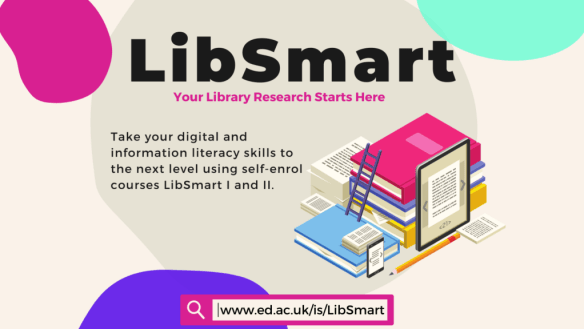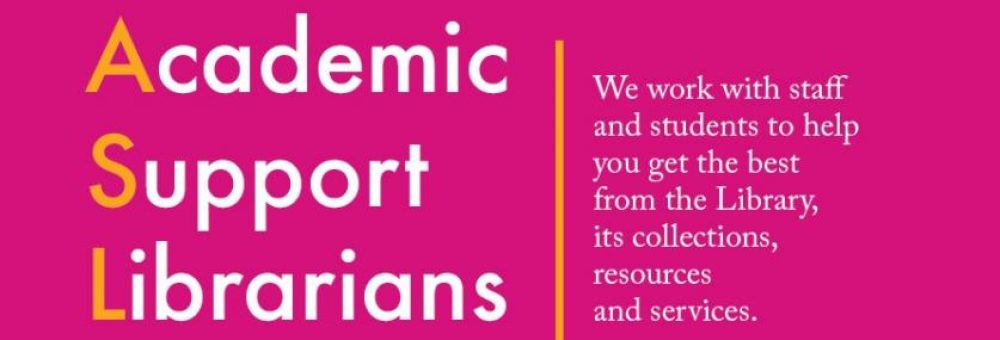By now we hope the name LibSmart is familiar to you. Whether you’ve seen a slide in a presentation from an Academic Support Librarian, a page on the display screens in the library, or you’re just an avid reader of this blog, we hope you know that our online information literacy course is up and running, ready for any staff or students at the University of Edinburgh to self-enrol via Learn.
You may also know that for every module you complete in LibSmart you receive a Digital Badge, issued to you by the ASL team via Badgr. We’ve been keeping an eye on the number of students enrolled and also the number of badges we’ve issued for each module, and we’re starting to see some trends emerge even though it’s still early in the academic year.

LibSmart badges
For LibSmart I, we’ve definitely seen the most badges issued for the first module Getting Started With The Library. This isn’t a great surprise as it is the first module and therefore a logical place for people to start. We’re also seeing great numbers in our Your Information Landscape module which helps students orientate themselves with the resources that are helpful for their subject area. We’ve also seen the most growth month-to-month in our Referencing and Plagiarism module, perhaps because we’re getting close to assessment time now and people are making sure they’re familiar with how to reference correctly for their assignments.
When it comes to LibSmart II, we’ve had a nice even spread of badges being awarded across all modules. The most popular so far has been Data mindfulness: finding and managing data for your dissertation, which shows a real appetite for assistance with dissertation and thesis work. This is great news as this is exactly what we hoped LibSmart II would do – help those at an advanced stage of study complete the big pieces of work! We’ve also got a three-way tie in second place for the Health Literature, Digital Images and Special Collections Fundamentals modules all having the same number of badges awarded. Because we assume these would appeal to students of quite different disciplines, it’s great to see the word is getting out to different schools!
Have you had a look to see what LibSmart can offer yet? Check the website for more information, or watch our self-enrol demonstration video to help you get started.











